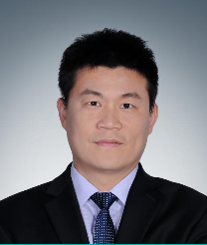
搜索网站、位置和人员

新闻与活动 活动信息
生命科学专题学术讲座 | 饶枫:Glucose sensing by Cullin RING ligase as a tragetable vulnerability in overnutrition-associated cancer
时间
2023年5月16日星期二
16:00-17:30
地点
云栖校区3号楼312会议室
主持
西湖大学生命科学学院教授Dieter A. Wolf
受众
全体师生
分类
学术与研究
生命科学专题学术讲座 | 饶枫:Glucose sensing by Cullin RING ligase as a tragetable vulnerability in overnutrition-associated cancer
时间:5月16日星期二16:00-17:30
Time:4:00-5:30 PM,Tuesday, May 16th,2023
主持人:西湖大学生命科学学院教授 Dieter A. Wolf
Host:Dr. Dieter A. Wolf, Professor of School of Life Sciences
地点:云栖校区3号楼312会议室
Venue:Room 312, Building 3, Yunqi Campus
主讲嘉宾/Speaker:

Feng Rao, AssociateProfessor,Southern University of Science and Technology (SUSTech), Shenzhen
Dr. Rao obtained his Ph.D. from Nanyang Technological University, where he worked with Prof. Zhao-Xun Liang on metbaolic enzymes regulating microbial cyclic dinucleotide messengers. His postdoctoral training was conducted at Johns Hopkins University School of Medicine, where he worked with Prof. Solomon H. Snyder on the physiological roles and signaling mechanisms of inositol polyphosphate metabolites. At SUSTech, Dr. Rao's research group studies metabolic regulation of proteostasis, with an emphasis on how they are integrated into cellular (patho)physiology via signal transduction pathways under disease micro-environment.
讲座摘要/Abstract:
The diabetes-cancer association remains under-explained. Here, we describe a proximal glucose signaling axis, centered on dynamic CRL-CSN assembly, that reinforces glucose uptake and glycolysis, thereby constituting a positive feedback loop to consolidate the Warburg effect and to overcome tumor suppression. Specifically, glucose-dependent CK2 O-GlcNAcylation impedes its phosphorylation of CSN2, a modification required for the deneddylase CSN to bind and sequester Cullin RING Ligase 4 (CRL4). Glucose therefore elicits CSN-CRL4 dissociation to assemble the CRL4COP1 E3 ligase, which targets p53 to derepress GLUT1 and glycolytic enzymes. Genetic or pharmacologic disruption of the O-GlcNAc-CK2-CSN2-CRL4COP1 axis abrogates glucose-induced p53 degradation and cancer cell proliferation. Diet-induced overnutrition suppresses CSN to up-regulate the CRL4COP1-p53 axis and to accelerate PyMT-induced mammary tumorigenesis in control but not mammary gland-specific p53 knockout mice. Finally, a peptide inhibitor of COP1-p53 interaction reverses the pro-tumorigenic effects of overnutrition. Thus, glycometabolism can auto-amplify via a glucose-induced post-translational modification cascade culminating in CSN inactivation and CRL4COP1-mediated p53 degradation. Such mutation-independent bypass of the p53 checkpoint represents a targetable vulnerability that underlies the carcinogenic origin of hyperglycemia.
联系人/Contact:
生命科学学院
于文越 yuwenyue@westlake.edu.cn

















